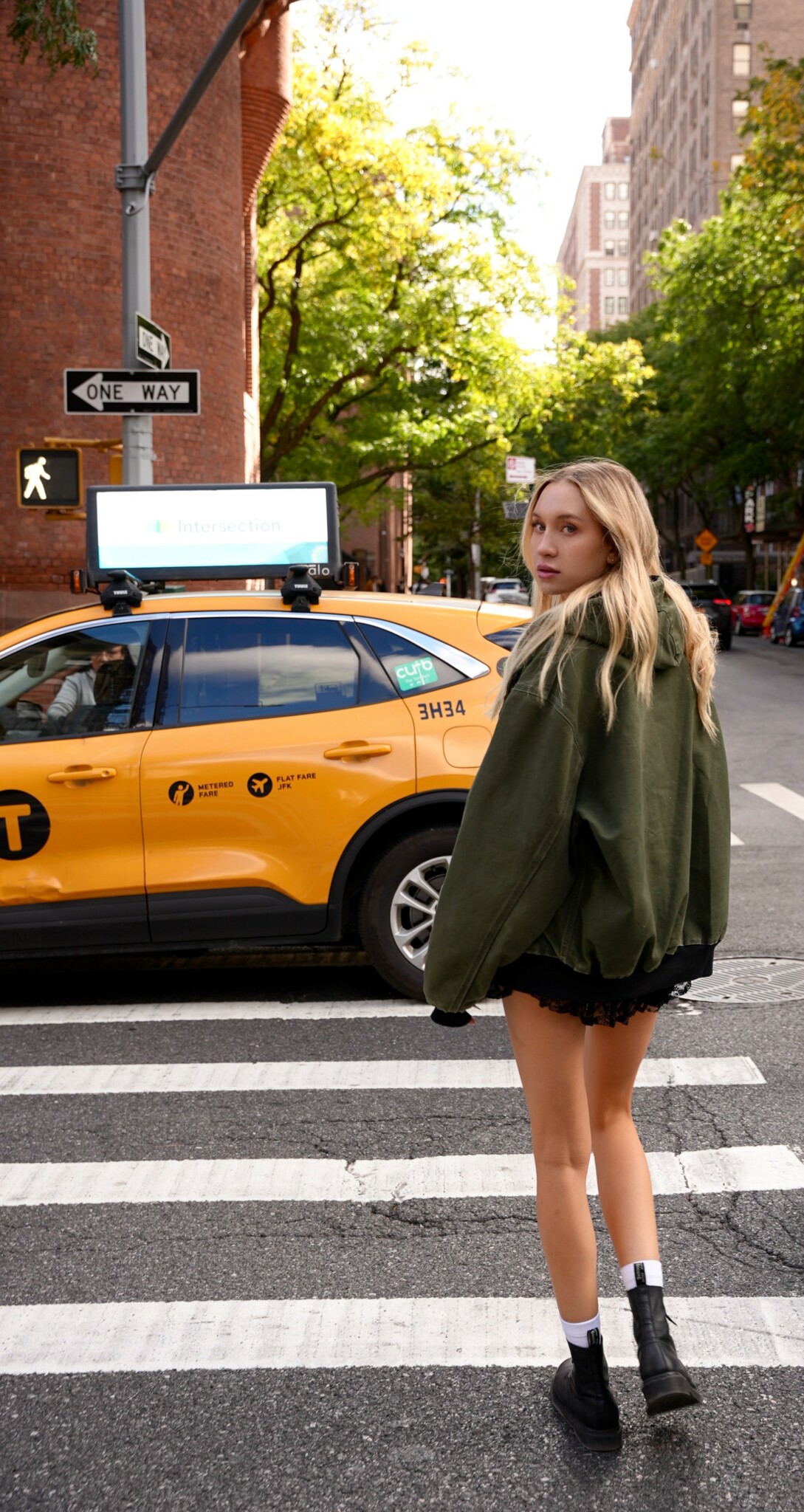We were lucky to catch up with Kathi Reichel recently and have shared our conversation below.
Kathi, thanks for joining us, excited to have you contributing your stories and insights. Are you happier as a creative? Do you sometimes think about what it would be like to just have a regular job? Can you talk to us about how you think through these emotions?
I love this question because I was confronted with it just yesterday. It was around 7 p.m. when my roommate came home from work, made dinner, and eased into her nighttime routine—watching a show in bed, settling into comfort. Meanwhile, in the room next door, I felt anxiety creeping in. Had I done enough today? Was filming three self-tapes and editing them all day sufficient? I should apply for more castings. Definitely. Right now.
So, I opened my laptop and frantically scrolled through listings, searching like a person possessed. Instead of finding peace, I wound myself tighter, unable to sleep. Wonderful.
As an actor—or anyone in the creative field—work rarely follows the structure of a conventional 9-to-5 schedule (unless you’re on set!). You craft your own hours, which makes it difficult to feel as though you’re truly “working,” even when you spend the entire day immersed in your craft. It’s a strange paradox: I am working, but not in the way I was conditioned to believe work should look.
Watching roommates and friends leave for structured jobs, it’s inevitable to compare. The thought seeps in: Am I doing enough? I rarely allow myself to simply relax because my mind instantly interjects—You could be doing X and Y for your career right now. So I work at odd hours—weekends, late nights, whenever I can—because in this field, you are constantly working just to secure actual work.
Yet, when I try to imagine myself doing anything else, my entire body recoils. I know, with absolute certainty, that this is what I am meant to do. (And, to be clear, I don’t believe any job is “regular” or devoid of creativity.) I love what I do. I get to create every day, to express, to shape stories—it fulfills me in ways nothing else could. The struggle comes not from the work itself but from my restless mind, comparing, measuring, questioning. But life is not meant to be lived by someone else’s blueprint. It’s okay to design it on your own terms.
On the topic of happiness—I’ve spent a long time trying to “achieve” it. Society inundates us with the notion that happiness is something to pursue, a destination reached through the right combination of X and Y. But happiness, I’ve come to realize, is merely an emotion—one of many. And emotions, by nature, ebb and flow.
I don’t want to exist in a state of perpetual happiness. That would rob me of the full spectrum of human experience. My work shouldn’t just make me happy—it should challenge me, stretch me, frustrate me at times. Without those moments, there is no growth.
I once heard a phrase that stayed with me: Stop trying to be happy. Start trying to be useful. And in my experience, when you devote yourself to something meaningful—when you live your purpose—happiness is not a goal to chase, but a natural byproduct of creation, of action, of becoming.
Happiness is not in the attaining. It’s in the doing.
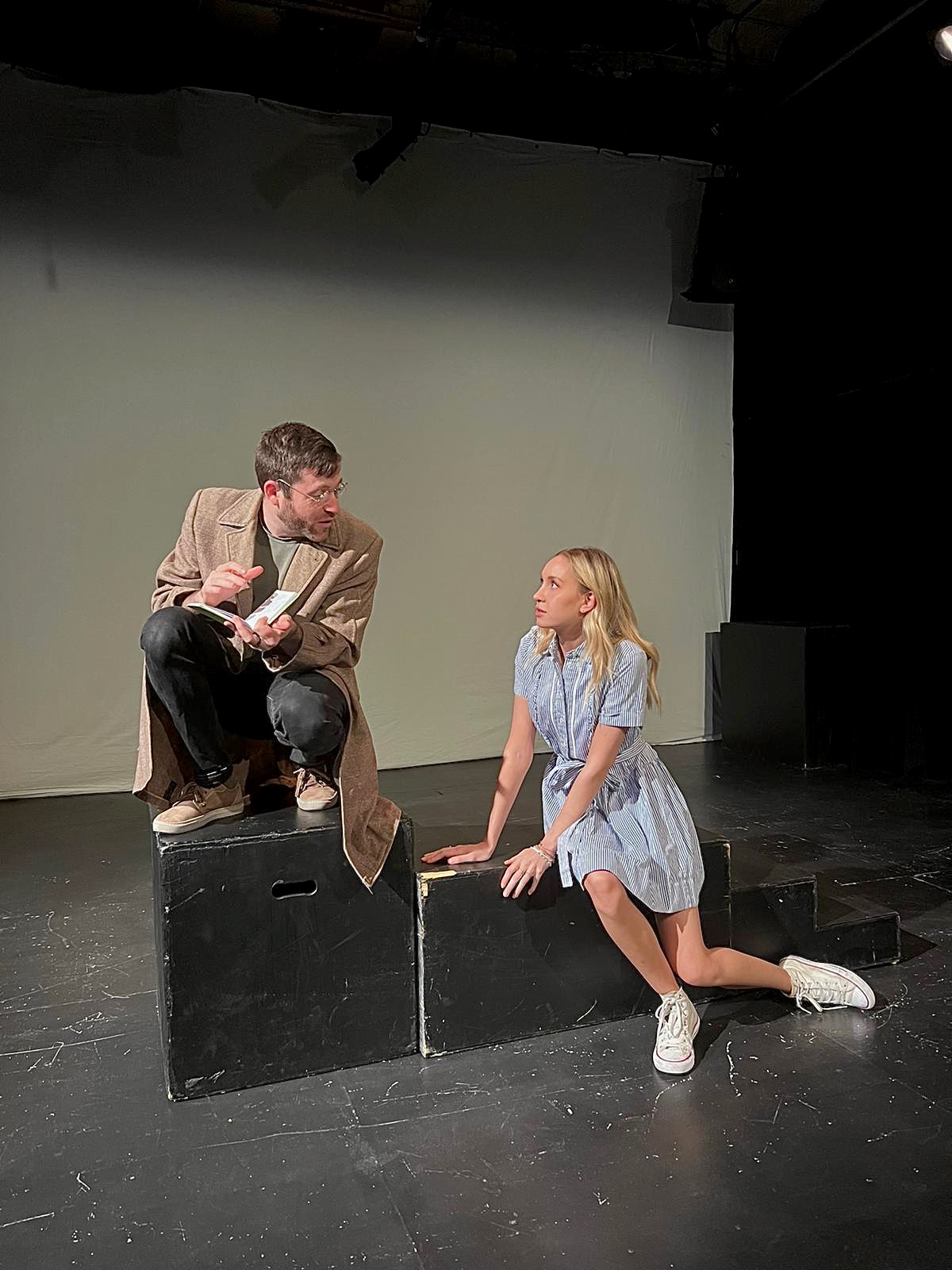
Great, appreciate you sharing that with us. Before we ask you to share more of your insights, can you take a moment to introduce yourself and how you got to where you are today to our readers.
My name is Kathi, and I like to think of myself as a storyteller—a dreamer, a little Walter Mitty at heart.
I grew up in a small town in Germany, always dreaming of moving to the States to become an actress. It felt almost ridiculous to say out loud, a fantasy so far-fetched that people around me would joke, “Oh, Kathi? Yeah, she’s going to America.” But movies were my entire world. I was obsessed, utterly captivated by the stories they told.
Yet, as childhood faded into adolescence, self-doubt crept in. Family struggles, a lack of confidence, and the constant noise of outside opinions made me question myself. Acting no longer seemed like an option, so instead, I chose to study Film at university in London—careful, however, to select a program that wasn’t too hands-on. At 18, the mere thought of directing, of standing at the helm and giving instructions, felt laughable. I could barely make eye contact with another person, let alone command a set.
But something was missing. Every day left me drained, unfulfilled. Deep down, I knew I wasn’t being honest with myself about what I truly wanted. I just lacked the self-awareness—and the courage—to admit it was always acting.
Then, in my final semester, everything changed. I helped a friend shoot his dissertation film, where he had invited two actor friends to perform. Until that moment, I had never been around actors, never seen them work up close. To say I was transfixed would be an understatement. I was drawn to them like a moth to a flame. And in that moment, I knew—if I didn’t follow this burning curiosity now, I never would.
Soon after, I came to New York City for an internship—another step that left me feeling hollow. Then, one fever-induced night, in a haze of restlessness, I signed up for an acting class. That single decision altered the course of my life forever.
For so long, I had believed that storytelling was only possible from behind the camera. But when I stepped into acting, I discovered my purpose. To touch, move, and impact others by embodying stories—this is what I was meant to do. Every role I take on, every project that calls to me, is a story that deserves to be told.
Acting is such a profoundly collaborative art; each person involved shapes the way a story unfolds. Everyone’s unique contribution alters its course, breathing life into something greater than any one individual. My greatest aspiration is to be part of projects that resonate, that leave an imprint—whether on a grand scale or in the heart of just one person.
Because that is, perhaps, the most beautiful part of being an artist. To know that someone, somewhere, has watched what you’ve created—and in that moment, something inside them shifts. A thought, a feeling, an idea. Maybe it touches them. Maybe it moves them. Maybe, in some small way, it helps them.
And for me, that is enough. That is purpose.
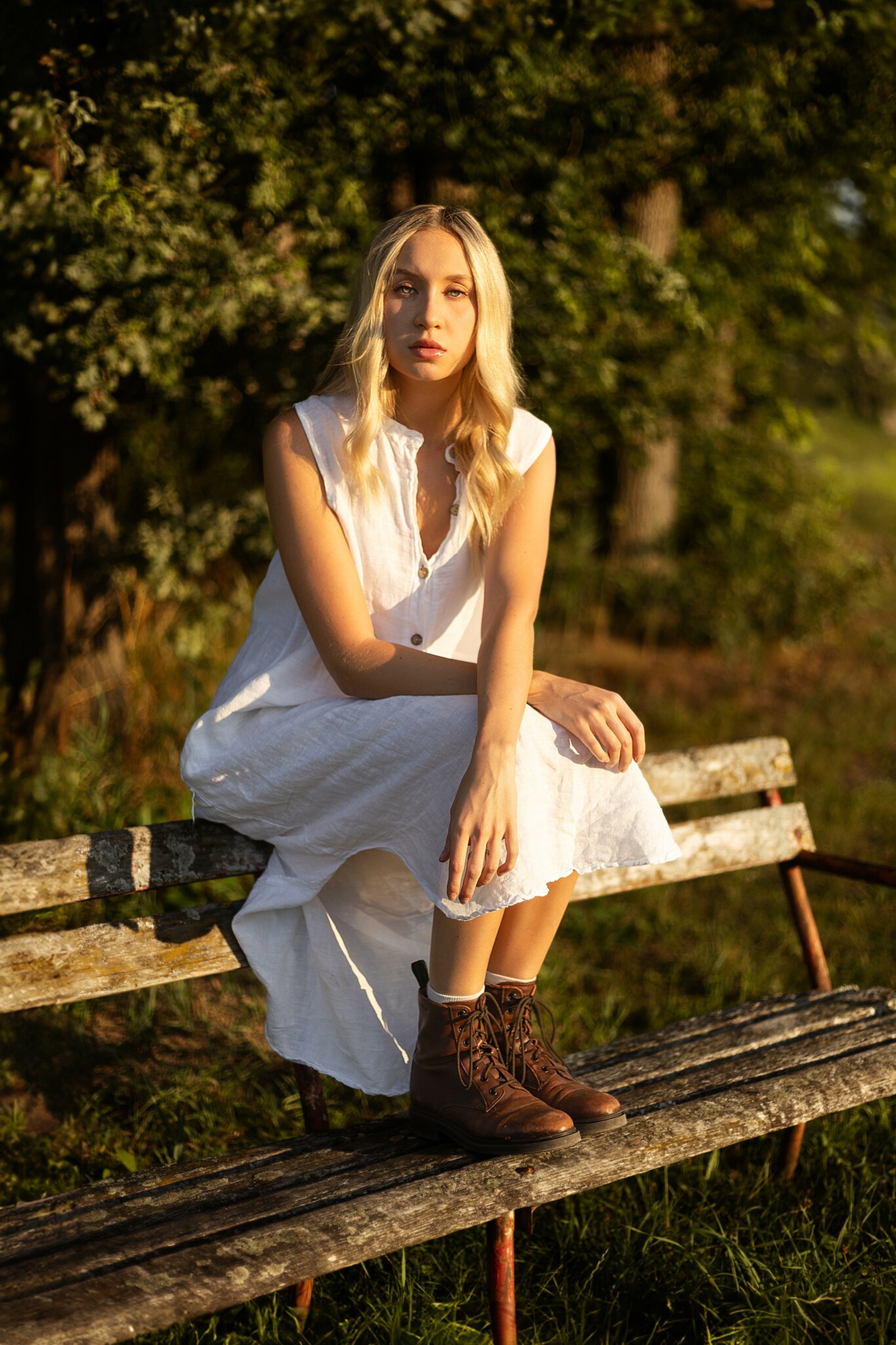
How about pivoting – can you share the story of a time you’ve had to pivot?
The last five years of my life have been a series of pivots. Though, I wouldn’t call them pivots—rather, steps toward what I’ve always known was right for me. That kind of journey requires immense trust in oneself, as well as the courage to acknowledge and accept your deepest desires. And that? That is anything but easy.
Ironically, hitting rock bottom may have been the best thing that ever happened to me. I laugh as I type this because, at my lowest point after school, I kept thinking: I can’t fall any further, so I might as well take the leap and follow this pull inside me. What’s the worst that could happen? No—what’s the best that could happen?
Because of medical issues in my family, I grew up with an intimate knowledge of the human body. Biology fascinated me, and for the longest time, I stood at a crossroads: film or medicine? My family believed medicine was the safer choice. I chose film.
Then COVID hit. Suddenly, I was completing my degree from my bed. Fantastic.
I knew I needed to get out. At that point, I wasn’t even sure what I enjoyed in life, but I landed a creative internship in marketing in NYC. Definitely not for me— definitely improvised myself through that interview… I didn’t even know how to use Photoshop. So, I pivoted. I signed up for an acting class.
Still unsure of what I wanted to do with my life (though, deep down, I already knew the answer), I took another acting class that summer. Just to stay in New York, I told myself. Just because… it was fun.
I was supposed to return to Germany after the summer. Instead, I pivoted again—I enrolled in a conservatory.
I could go on and on, but here’s what I’ve realized: the more I veered away from what I thought was right and leaned into what felt right, the more alive I became. I started having fun. I grew—immensely, and I still am.
If you never pivot, you remain on a path without ever stopping to ask: Is this even the right one? Have I ever looked at my life from another angle?
Robert Frost’s The Road Not Taken captures this sentiment beautifully. And so, to anyone hesitating at a crossroads—go. Pivot.
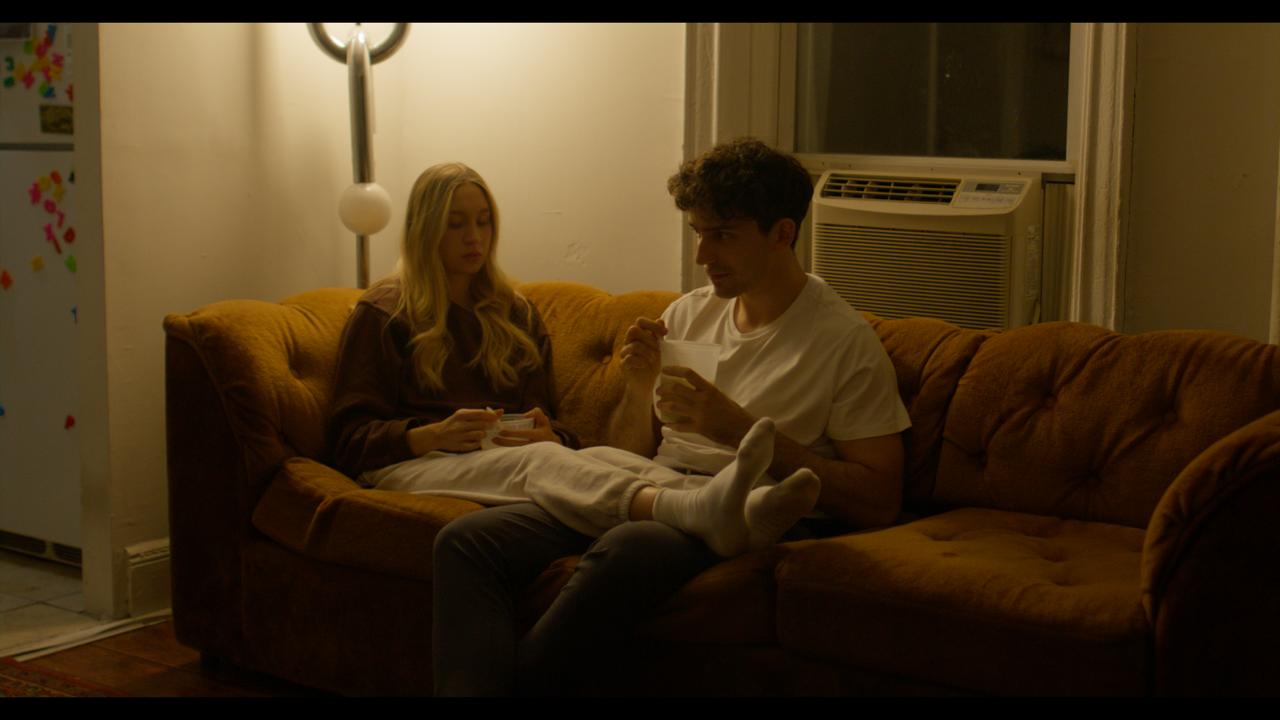
Have any books or other resources had a big impact on you?
Oh my goodness, yes! Finding a mentor in everyday life can be challenging, but books, podcasts, and other resources offer the perfect way to gain access to incredible wisdom and guidance.
Personally, I love podcasts and have been listening to them for years. Without a doubt, the one that has profoundly impacted my mental health and overall approach to life is On Purpose by Jay Shetty. I’ve followed him for years, and to say he has helped me in every aspect of my life would be an understatement.
Through his podcast, I’ve also discovered so many inspiring individuals, and I often seek out other interviews they’ve done or dive into the books they’ve written. Some of the best names that come to mind are Ed Mylett, Tony Robbins, Robert Greene, Mel Robbins, Joe Dispenza, and Steven Bartlett. These incredible minds share their knowledge through podcasts, books, and countless free resources available online.
The sheer amount of accessible wisdom is something I cannot stress enough. Simply by staying curious and open, I gain new insights every week—insights that challenge my beliefs, reshape my thinking, and expand my perspective on what’s possible.
There is so much out there waiting to be explored—all we have to do is take advantage of it.
Contact Info:
- Instagram: https://www.instagram.com/kaddl_r
- Linkedin: https://www.linkedin.com/in/kathi-reichel
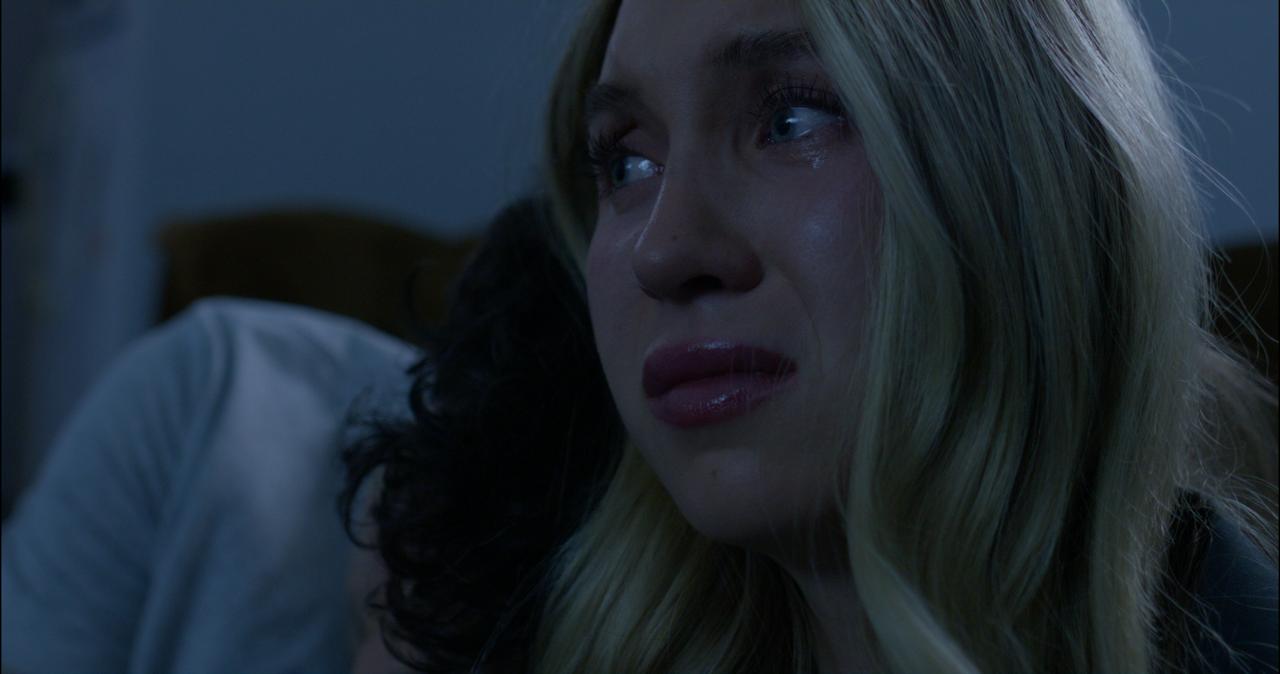
Image Credits
Lisa Andraschko
Miguel Laranjera


